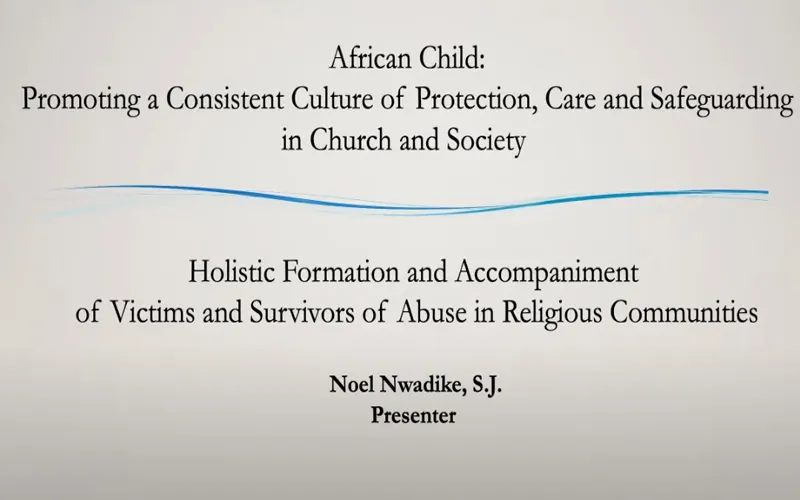According to Fr. Nwadike, Sr. Victima’s account is “the reality of a good number of consecrated women.”
He acknowledged the courage of Sr. Victima for opening up saying, “The less courageous Sisters suffer from fear, shame, and depression. Some others are terrified by the consequences of reporting their abuser, especially if they don't feel supported by their Religious Superior and community.”
“A painful fact still remains,” the Nigerian Cleric said, and explained, “Some Religious Superiors lack the empathy and compassion to support their abused members. There are those who are not willing to pay for the therapy sessions of their sexually abused Sister. When victims express the need to begin therapy, they are stoically rebuffed with the cold statement, ‘the congregation cannot afford such expenses.’”
He added, “Many of these victims and survivors, whether they are men or women, suffer in silence. Their suffering is all the more aggravated by the neglect and lack of support systems in the religious communities.”
Fr. Nwadike, who is a member of the Child Protection Commission of JCAM, however acknowledged some “bold Religious Institutes that are equipping and supporting their members in dealing with the reality sexual abuse.”
(Story continues below)
Making reference to Religious Orders, he said, “Some of them have policies and structures to deal with allegations of sexual abuse. However, there are some other institutes that are still struggling to learn how best to respond to the sexual abuse of their members.”
“There are formators and spiritual directors who are yet to learn how to accompany their members who are suffering from both short-term and long-term effect of sexual abuse. As a result of this situation, victims and survivors under their care suffer from a lack of empathy and compassion from their formators, spiritual directors and religious superiors,” he further said.
The Jesuit Cleric whose research interests include Developmental Trauma and Personality Pathology lamented that although Pope Francis’ Apostolic Letter on sexual abuse “encourages and obliges victims to report and denounce their abusers, the reality among consecrated religious here in Africa has not changed much, despite the growing awareness of sexual abuse.”
He explained, “Victims neither feel safe nor secure to disclose and report their abusers due to threats of victimization, recrimination, shame, and fear of expulsion from their religious institute. Thus, these religious men and women continue to feel oppressed, suppressed, and neglected.”
To those that consecrated persons may reveal to, that they have been abused, Fr. Nwadike urged to, among other things, protect the victim, show empathy and compassion to them, believe them, resist the temptation to doubt the disclosure, and affirm the victim for their courage.
He called on people to whom abused persons confide, to ensure that the victims receive the appropriate therapeutic support, and follow the procedure for reporting to the Child Protection & Safeguarding officer of the perpetrator's Diocese, or Religious Order or Church institution.
“Ensure that the victim is very well prepared and protected, before, during and after the process of investigation begins,” Fr. Nwadike said during the seminar, adding, “It is usually a very painful process for the victim, and terrifyingly shameful for the abuser.”
Inspired by Pope Francis’ Apostolic Letter on tackling abuse in the Church, the colloquium, which brought together Jesuits, laypersons, church leaders, and representatives from other Religious Orders from across the continent aimed to “contribute to the global ‘task regarding all of us as the People of God’ to create a safe environment for all, especially children, in Church, family and society.”
According to the leadership of JCAM, the papers presented at the three-day virtual event are set to be edited into a single resource volume and made available for publication to inform further research, study, formation, and practice.








